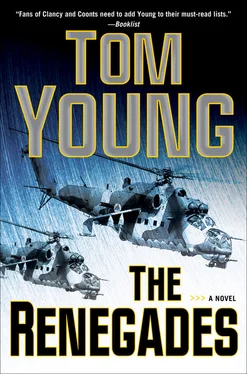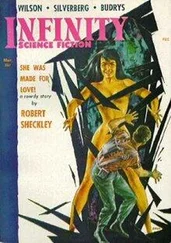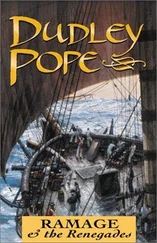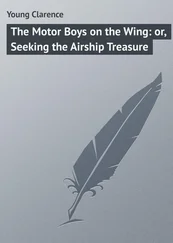FOR PROFESSOR RICHARD ELAM,
a great teacher and friend, and veteran of the U.S. Navy
Even from a thousand feet in the air, Lieutenant Colonel Michael Parson could see the earthquake had shaken Afghanistan to a new level of misery. The slums of Mazar-i-Sharif stretched below the Mi-17 helicopter like a vast, disturbed hive. People milled in the streets. Black columns of smoke seethed into the sky above a city of collapsed ceilings and crumpled walls. An untold number lay dead or dying beneath the rubble.
The quake had happened only about an hour ago, and the U.S. Geological Survey rated it a preliminary 7.2. A smaller magnitude than the quake that had devastated northern Japan in 2011, but worse in its own way. Afghanistan’s construction standards were prehistoric.
Parson stood in the back of an Afghan chopper with an Afghan interpreter and an Afghan army colonel. Up front, Captain Rashid commanded the aircraft, accompanied by his copilot and a flight engineer. Wind from the helicopter’s open door rippled the sleeves of Parson’s tan desert flight suit. Reeking whiffs stung his nostrils. Not aircraft exhaust, but something closer to the smell of coal and charred wood. Black flecks whipped through the air: soot from the fires on the ground.
Rashid, the colonel, and the interpreter conversed in Pashto. Subdued tones on the interphone like whispers at a funeral. Parson didn’t understand a word, but he could guess what they were saying: What a fucking mess. And Parson imagined the colonel was taking the thought a few steps further: These people will need everything—food, shelter, medicine. How will we ever airlift enough to make a difference? Oh yeah, and still fight the war.
Parson wished his old Army friend Sergeant Major Sophia Gold had already arrived. She spoke Pashto so well, she seemed to read minds. Parson had requested that she come work with him as an individual augmentee, and she’d agreed immediately; she just had to finish up some training back in the States. There was no better translator/interpreter in the business. And as a paratrooper, she’d been around aircraft enough to speak a little of that language, too.
Parson had been back in-country only a month, in a new role as an adviser to the Afghan Air Force. His third tour, but his first in a nonflying position. In his other tours, he’d flown as a C-130 Hercules navigator and then as a pilot on the C-5 Galaxy. He’d never piloted helicopters, but as a rated officer he could help teach the Afghans the basics of running a squadron: maintain currency records, give regular testing, retrain the guys who bust their check rides, and always, always, always treat maintenance with respect.
The Afghans were making progress toward a professional air force. However, Parson doubted they were ready for anything like the job ahead of them now. For that matter, he didn’t think he was, either. To fly his own plane, manage his own crew—that was one thing. To build an air force from scratch was another.
The chopper began to descend for a flyover of the Mazar Airport. The field lay to the east of town, surrounded by a dusty brown expanse highlighted with a meandering strip of green—the weeds and trees that grew along a river. Rashid banked the helicopter toward the airfield and attempted the radio call himself. “Mazar Tower,” he transmitted, “Golay Two-One.”
An answer came back weak but readable: “Golay Two-One, Mazar Tower. Go ahead.” Louisiana drawl. The weak transmission probably meant the controller was using a handheld radio. So power was out, and backup generators were not yet running. The quake must have hit the airport hard.
“Mazar Tower,” Rashid called, “Golay Two-One requests…” The pilot paused. The interpreter said nothing.
“Low approach,” Parson said on interphone.
“Low approach,” Rashid repeated on the radio.
Great, Parson thought. The pilot doesn’t speak good English, the interpreter doesn’t speak pilot, and the controller talks with an accent they’ve probably never heard before. A triple language barrier. Even the call signs were strange. Like most fliers, Afghan aviators liked macho words for call signs—in their own language. Rashid had told him golay meant bullet .
“That’s approved,” the tower said. “Golay Two-One is cleared for low approach. Be advised the field is closed to fixed-wing traffic.”
Parson gave Rashid a thumbs-up. To most people in South Asia, that would have been an obscene gesture. But Afghan pilots quickly accepted its American meaning. To give them that signal meant not only I agree , it’s working , or okay . The sign meant you considered them part of the international fraternity of aviators.
Out the window, Mazar’s runway two-four began to materialize through the haze. Parson knew the field well. In previous deployments he’d landed there in pitch-black on night vision goggles, in winter with snow blowing sideways, and on instruments—right down to minimums—in driving rain. But today something really didn’t look right.
Dark smudges appeared in two locations along the runway. As the Mi-17 flew nearer, Parson realized the smudges were fissures, wide gaps in the pavement. Other sections of asphalt also looked cracked up.
No wonder the field was closed. The runway had stretched more than ten thousand feet, but now no more than four thousand feet seemed undamaged. The biggest transports couldn’t get in here anymore. At best, the civil engineers could mark off a short assault strip. C-130s and C-27s bringing relief supplies could slam-dunk into the touchdown zone and deliver a few pallets at a time. But the C-5s and C-17s would need to off-load their large payloads at Bagram and Kandahar and let the smaller aircraft shuttle the cargo from there. Like digging a quarry with a spoon. And digging it under fire. Relief missions in a disaster area challenged pilots enough. What would crews face when natural disaster combined with war?
Broken pavement passed underneath the helicopter as Rashid overflew the runway. The colonel muttered something Parson could not understand. Epithets, Parson supposed. He noticed a hangar leaning as if a giant hand had tried to push it over. The control tower had suffered damage, too: A crack in the shape of a lightning bolt extended the length of the front wall. It probably wasn’t safe for anyone to remain in the building.
More Pashto on the interphone, and the helicopter climbed away from the airfield. “What are we doing?” Parson asked the interpreter.
“The colonel wishes to go into the city.”
Parson hoped he meant over the city. The chopper leveled at what he guessed to be a thousand feet, though he could not scan the altimeter from his seat. Not seeing the instruments rankled him. He looked across Mazar. Near its center he saw the Blue Mosque, also known as the Shrine of… somebody. Gold would know. He couldn’t see any obvious damage to the mosque.
The helicopter slowed, turned, accelerated, slowed again. Rashid seemed to be hunting for a place to land. Why were they landing? This is stupid, Parson thought. If Gold were here, he could explain why it was stupid. Parson started to order Rashid not to touch down, but then he remembered he wasn’t in charge. Under his breath he muttered curses, but profanity did little to ease his frustration.
People on the ground watched the aircraft, and some ran in whatever direction the helo headed. Parson could see at least a hundred Afghans milling around, and he hoped they’d have sense enough to stay out of the helicopter’s downwash and away from the tail rotor. That tail rotor could take off somebody’s head.
Читать дальше












